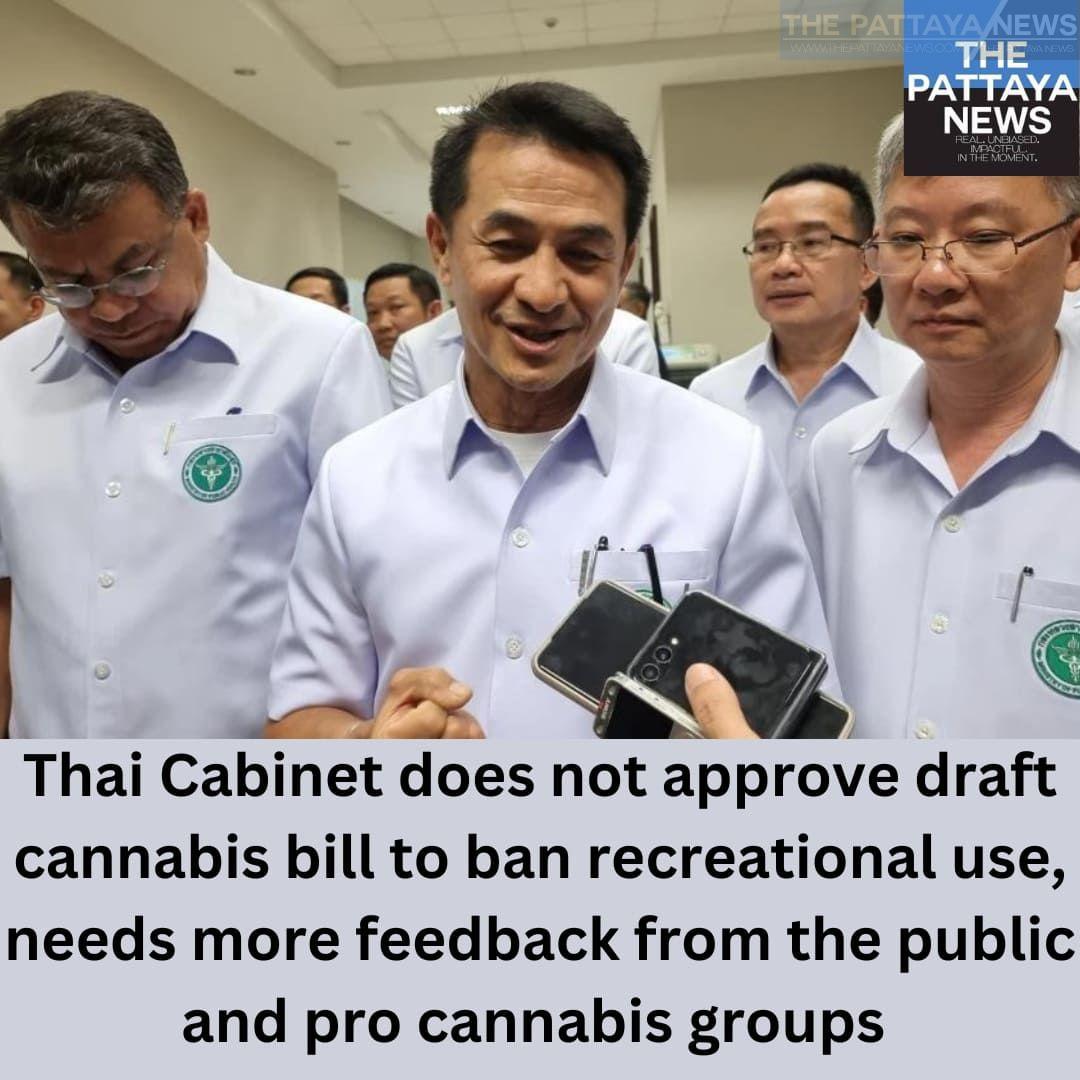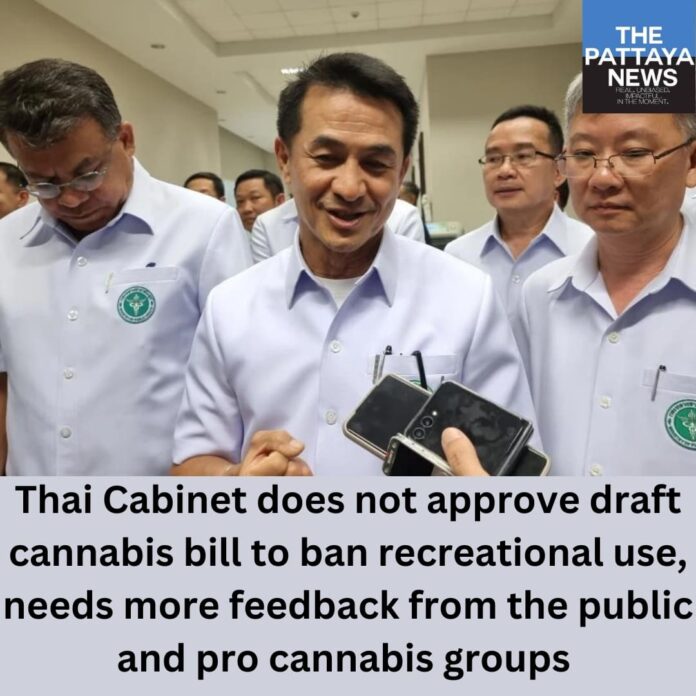Yesterday, February 13th, 2024, the draft cannabis bill that would ban recreational usage of cannabis was not approved by the Thai Cabinet, with relevant officials and the Minister of Public Health calling it a “delay” to speak with the public, pro cannabis interest groups, and get more opinions.
We’ve extensively covered the proposals and draft bill in prior articles, like this one here, so won’t be focusing on the content of the bill in this editorial.
What we will focus on in this editorial is the need for both sides to find common ground and to explain what is likely next to happen.
First off, the decriminalization of cannabis in Thailand was always intended for medical, not recreational usage. However, the draft bill according to opponents was vague on how a total ban on recreational, even in the privacy of one’s own home, would be enforced, with the bill describing recreational as “usage for pleasure and enjoyment.”
Additionally, there were major concerns around the proposed 60,000 baht fine for recreational use, which is higher than many other crimes including DUI, and concerns it would be used by corrupt officials, especially against foreign tourists. There are multiple other concerns with the draft bill that we won’t get into here, but the recreational aspect is the most contentious part.
On the side of those supporting the draft bill are claims it will make it more difficult for youth to get ahold of cannabis and that it will make it easier to enforce proper usage of cannabis.
Both sides agree that there must be regulations and laws around cannabis and to be fair are in agreement about many aspects, especially around illegal importing of foreign marijuana mostly from the US or foreign companies and not allowing foreign nationals to control and run the Thai cannabis industry. They are also mostly in agreement around rules and regulations that clearly label cannabis products, provide guidance and regulations for advertising and marketing, and many other areas. Both sides agree that there should be tax and clear licensing, although the amount of tax may be a contentious point.
However, the constant back and forth over recreational use, what constitutes recreational use vs. medical, and various proposals and ideas around this have held off putting in proper legislation for cannabis for almost two years now and if a draft bill doesn’t go to Parliament in the near future the current grey area will continue to stay until yet another bill is drafted which has many negatives. Both sides are in agreement on that as well.
Pro cannabis activist groups plan to meet today, Valentine’s Day 2024, in Bangkok near Parliament to propose their own ideas of an alternative version of a draft cannabis bill, which wouldn’t legalize public recreational use but would essentially confine it to private spaces while providing clear legal penalties to those smoking on streets or in public, like a recent Coldplay concert.
In fact, it was that Coldplay concert that drove the Minister of Public Health to try to rush the cannabis legislation through the Cabinet. Of course, it would still need to go through Parliament afterwards.
However, the Cabinet and the Ministry of Public Health decided to delay the draft bill until they can get more feedback from the public, especially pro-cannabis groups, which is a hopeful sign for common ground.
If both sides find agreement, both the cannabis industry and the public health department, on a draft bill that suits all sides it avoids any possibility of a messy fight in Parliament over the bill or protests from business owners. It likely ensures the bill will be adhered to and followed by cannabis shop owners (who would get to keep their dispensaries, with some new rules), would give tax dollars for the government, and it would be a common ground for all involved.
Is this guaranteed to happen? No. But after almost two years of fighting over cannabis and the genie out of the bottle to the level it is now, a simple “ban” on all recreational likely would not be enforced well, would be abused by corrupt law enforcement, and would push sales back underground, limiting control and tax dollars to the government.
Hopefully all sides reach a common ground and the Thai government seriously considers the alternative draft being put together by pro-cannabis activists, which you can learn more about in Thai here.
Both sides have repeatedly said making marijuana entirely a narcotic again, which would see jail time for users reintroduced, is not the solution, so that is one other thing they are in agreement on.
If they are not able to find common ground and the current version of the draft law is pushed through, there is also the real concern that many cannabis shops ban together in a class action lawsuit against the Thai government which would be long, drawn out, emotional, and messy. Both sides likely want to avoid this as well.
We will continue to update you on this and all other stories here at TPN.





